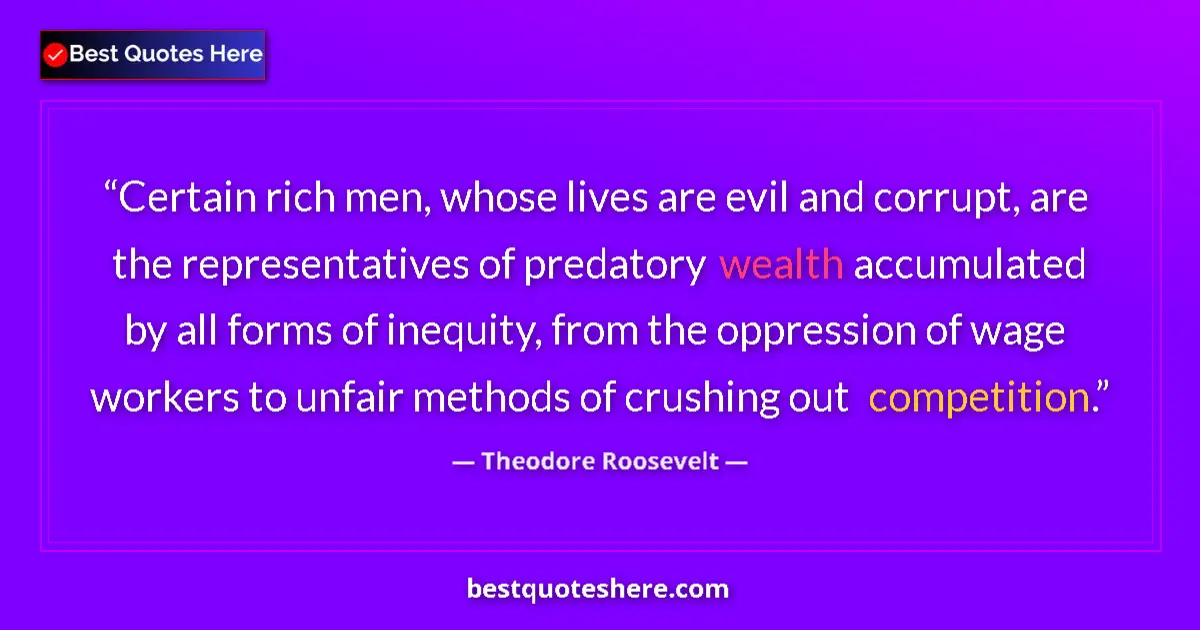"Certain rich men, whose lives are evil..." - Quote by Theodore Roosevelt
Certain rich men, whose lives are evil and corrupt, are the representatives of predatory wealth accumulated by all forms of inequity, from the oppression of wage workers to unfair methods of crushing out competition.

More by Theodore Roosevelt
“I can no more explain why I like "natural history" than why I like California canned peaches; nor why I do not care for that enormous brand of natural history which deals with invertebrates any more than why I do not care for brandied peaches. All I can say is that almost as soon as I began to read at all I began to like to read about the natural history of beasts and birds and the more formidable or interesting reptiles and fishes.”
“From reading of the people I admired - ranging from the soldiers of Valley Forge and Morgan's riflemen to my Southern forefathers and kinfolk - I felt a great admiration for men who were fearless and who could hold their own in the world. And I had a great desire to be like them.”
“Constructive change offers the best method for avoiding destructive change.”
More on Wealth
“Indeed, the test of orderliness in a country is not the number of millionaires it owns, but the absence of starvation among its masses.”
“Keeping plenty of gold and jade in the palace makes no one able to defend it.”
“Don't educate your children to be rich. Educate them to be happy, so they know the value of things, not the price.”
More on Corruption
“The trail of the serpent reaches into all the lucrative professions and practices of man. Each has its own wrongs. Each finds a tender and very intelligent conscience a disqualification for success. Each requires of the practitioner a certain shutting of the eyes, a certain dapperness and compliance, an acceptance of customs, a sequestration from the sentiments of generosity and love, a compromise of private opinion and lofty integrity.”
“Th abuse of greatness is when it disjoins remorse from power.”
“There is scarce a king in a hundred who would not, if he could, follow the example of Pharoah - get first all the people's money, then all their lands, and then make them and their children servants forever.”